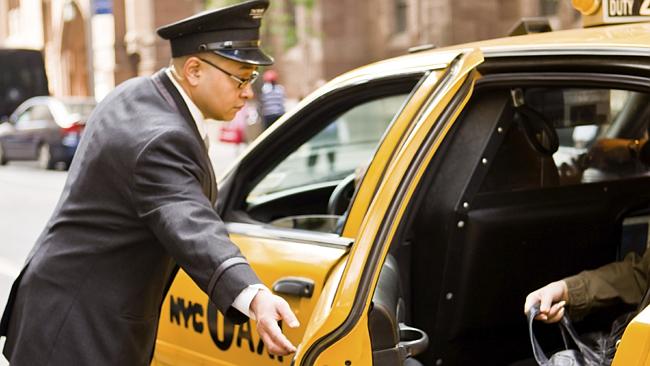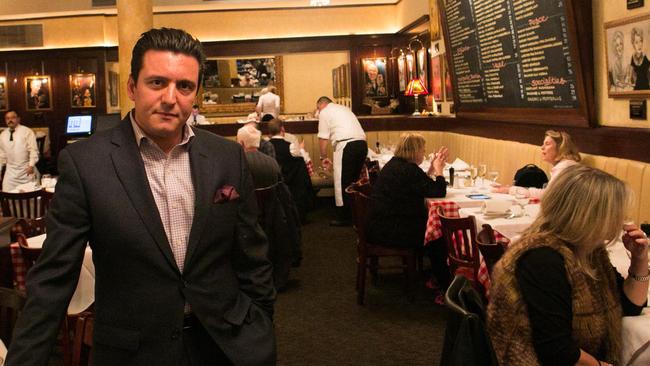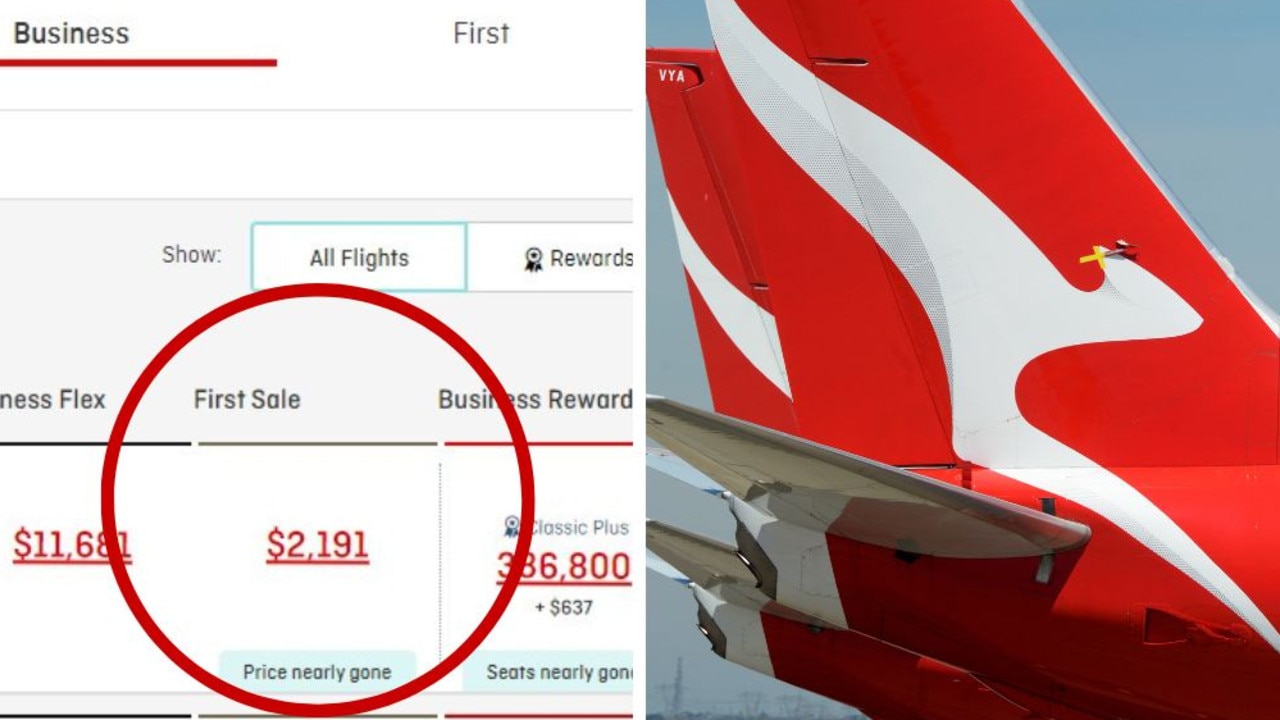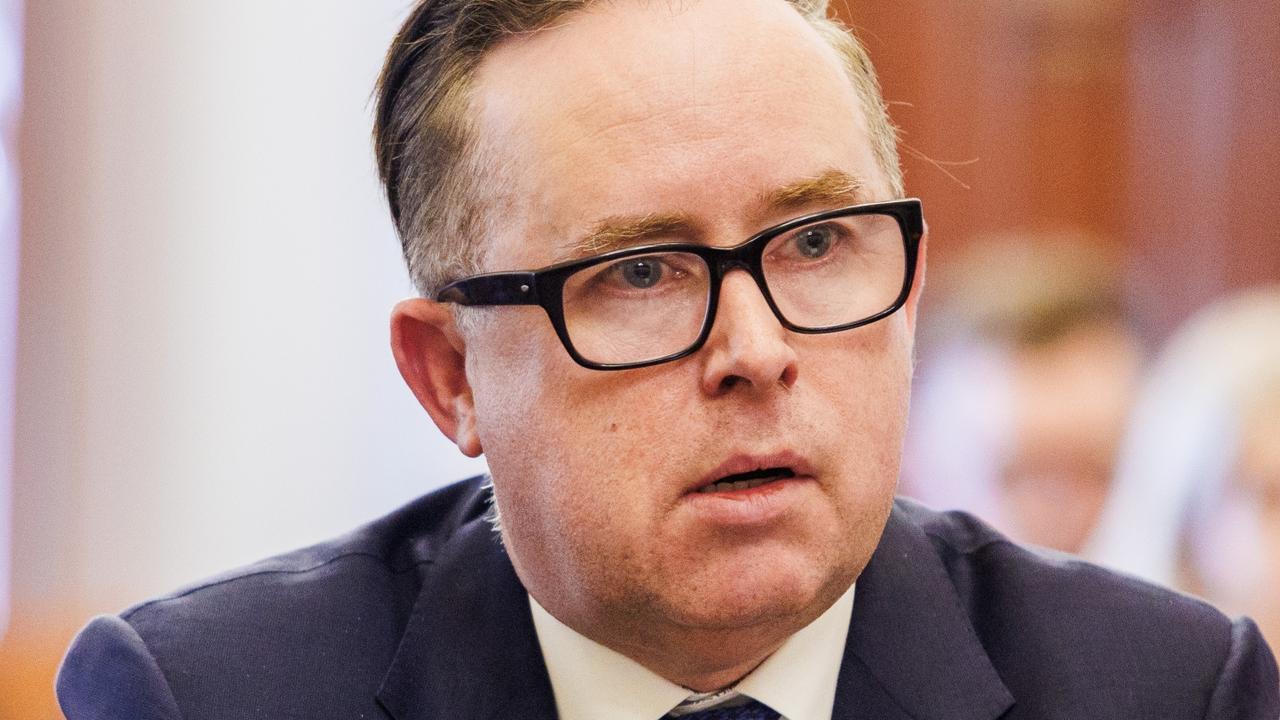Is this the end of tipping in New York?
IT’S the most baffling thing for any Australian visiting New York, and you often feel like you’ve been ripped off.

MY NEW sofa was being delivered to my new apartment in my new city. I was finally living in New York. After months of tough preparation, to me this represented a moment of triumph.
But my conceit was fleeting. As the delivery guy was leaving an awkward silence occurred. He looked at me with what I now know to be expectation. I looked at him baffled. And then it dawned. Oh, he wants a tip.
Navigating North America’s tipping system has extended me in ways I’d rather not be extended. It can be tricky doing quick calculations while your server waits, and determining whom to reward and how much is not always straightforward.
While not all in the service industry expect to be tipped, I was advised to reward my haircutter and colourist 20 per cent each, my locksmith clearly expected a gratuity, perhaps because I’d called him on a Sunday? And then there was the barman who served drinks costing $11.50 and asked if I wanted change from $20. At this point I baulked. But the system is confusing, laden with complications and manipulation. And a newcomer is so easily taken for a ride.
But it’s not only the unseasoned who find the US gratuity system onerous. A quick internet search on the topic demonstrates this. And when I ask my friends for advice, their ideas are so inconsistent it only confuses things.
So imagine my joy and perhaps the joy of the collective consumer population, when headlines recently heralded: “The end of tipping in New York?” Well-known restaurateur Danny Meyer had declared diners in his 13 mid to top-tier New York eateries would be barred from paying gratuities. Instead, the price of each dish will increase and be reflected in staff wages.
Meyer’s Union Square Hospitality Group owns restaurants such as The Gramercy Tavern, Blue Smoke and The Modern, located inside the Museum of Modern Art. The Modern will be the first of Myer’s businesses to institute the tipping ban.
And the move has the potential to spread. Meyer’s credited with introducing nonsmoking to New York restaurants well before the practice was banned.
Now he wants to bring wage equity across the restaurant floor because while the front of house staff benefit from gratuities, the backroom workers do not.
“I hate those Saturday nights where the whole dining room (staff) is high fiving because they set a record and they’re counting their shekels and the kitchen just says — ‘well boy, did we sweat tonight’,” says Meyer.
Myer’s announcement has enthused some and upset many. Those against the move declare the demise of tipping would mean the end of good service.
Ciro Heta is the manager of the large Times Square Italian family restaurant Tony’s Di Napoli, that serves between 800 to 1000 people daily. Heta’s strongly opposed to Meyer’s move and says there’s no way his business will follow.

“It’s socialism. They want to make everyone equal. But this country was built on competition. The service industry will be mediocre without tipping. It will be like Europe where there is no tipping and service is not good. Without it (tipping) there is no incentive to work hard and have good service.
Heta says his waiters receive $5 an hour regardless of experience and that tips are worth about $250 per shift. He acknowledges the kitchen staff receive nothing from gratuities. But while vague on the detail, he says the dishwashers and line chefs are rewarded on top of their base salaries.
On my way home from meeting Heta, I stop for a soup in a tiny Ramen shop. I ask the waiter his base pay rate. He says his employer pays him nothing and that he only works for tips — on a good night $250 but more often about $80. It’s illegal for employers to not pay a wage but the waiter says it’s widespread. And he laughs when he discovers I’m Australian.
“Australians are the nicest people but the worst tippers,” he says. “They come in, in big groups, eat and then get up and leave 80 cents on the table. There’s nothing I can do.”
Slightly embarrassed about my compatriots, I mumble something sympathetically about capricious customers and leave him an overly generous gratuity, marvelling once again at the awkwardness of another exchange involving tipping.



